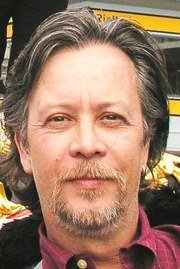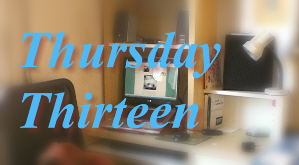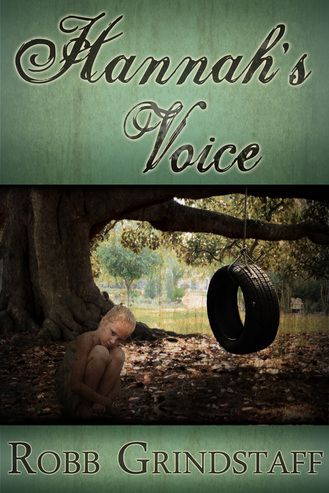Characters tend to show up in my head uninvited. They start talking, I write down what they say. I hear the character’s voice in my head, and I’m just taking dictation. -- Robb Grindstaff
I purchased the book on Tuesday morning and completed it Tuesday night. It's a truly engaging read, with sharp wit, biting satire and wonderfully John Irving-esque echoes throughout. (I'll be writing a review soon, when I've recovered from the 'flu.)
In the interest of "full disclosure", I'd like to add that Robb and I have been friends since we met on the Harper Collins Authonomy site back in 2008 (how time flies!).
So now, please allow me to present to you:
Thirteen Questions for Robb Grindstaff!

My career has been as a newspaper editor, publisher, and manager. The newspaper biz has taken my family and me from Phoenix, Arizona, to small towns in North Carolina and Texas, and from seven years in Washington, D.C., to five years in Asia. Born and raised a small-town southern kid, I’m just as comfortable in Tokyo or Tuna, Texas. I now live in a small community in Wisconsin where I manage a daily newspaper. I’ve written fiction most of my life, and the variety of places I’ve lived and visited serve as settings for the characters who invade my head.
I’ve had a dozen short stories published in several print anthologies and magazines, and several of my articles on the craft of writing fiction have appeared in writerly type mags and websites. I’ve been editing book manuscripts, fiction and non-fiction, for about five years.
(2) You shared some of your work on the Harper Collins Authonomy site when you were working on it. Do you think this proved beneficial?
Posting my work on Authonomy did prove beneficial, but perhaps indirectly, not because of the contest or the editor’s review. Harper Collins didn’t offer me a publishing contract because of it. Ha. This was back when Authonomy first launched, and it was a much smaller group than it later became, and I think it had more camaraderie at the time than it did later when things went a bit overboard. It may be a wonderful site again—I haven’t been there in more than four years.
I met some wonderful writers on the site with whom I am still friends today. Writers would read each other’s works and provide detailed, honest critiques. The feedback was very helpful at that stage of the writing. Hearing from other writers that the story and the character grabbed their attention—that it really was good enough to keep working on—provided a lot of encouragement. My other novel, Carry Me Away, made the editor’s desk as a top five book on Authonomy. The whole experience really pushed me to keep writing Hannah’s Voice and to submit Carry Me Away to agents and publishers.
(3) An advance review of your novel, Hannah's Voice, says: "Robb Grindstaff’s writing is pure, and free of the hyperbole and love for one’s own words that often get in the way of a good story." What was your immediate reaction upon reading that?
I think all writers like to hear positive feedback. It’s kind of a “Yes, it worked the way I intended” reaction when someone gets it and enjoys it. Writing is such an internal, personal process, that to share it at all can be a little frightening. If someone doesn’t like it—and there will always be those who don’t because reading is also an internal, personal process—it’s hard not to take it personally, no matter how much you try to detach and accept the fact that not everyone will love everything you write.
(4) How much of that hyperbole-free writing is conscious effort, and how much is simply your own "voice"?
I’m not sure I can easily separate the two. It takes conscious effort and years of writing to develop your ‘author’s voice.’ But it’s also a product of the author’s personality, the way the writer views the world, the way the writer naturally communicates. I also believe an author’s voice continues to grow and develop and change over time.
And then there’s the character’s voice, which is a different element from the author’s voice. Although the two are inextricably linked, a character doesn’t speak or think or view the world exactly the way I do. Characters tend to show up in my head uninvited. They start talking, I write down what they say. I hear the character’s voice in my head, and I’m just taking dictation. But then I fuss over every single word to make sure that the words on the page will translate that voice accurately from my mind to the reader’s mind. I want the reader to hear the same voice that spoke to me, and that takes a lot of conscious effort—writing, rewriting, revising, editing. Would the character say it this way or that way? Am I getting the exact right words, in the exact right order, so readers will feel what Hannah feels, know what she thinks, see what she sees? Will readers hear Hannah’s voice?
(5) Who (or what) is your favorite character you've written, so far?
Oh, that’s sort of like asking, “Which is your favorite child?” If I don’t love a character, I can’t write the story. Hannah is pretty special to me, of course. I want readers to get to know her the way I know her, and I want readers to remember her long after they’ve forgotten the details of the story. To me, the best books I’ve ever read are those where the characters stick with me for years and years—Holden Caulfield from J.D. Salinger’s Catcher in the Rye, Garp from The World According to Garp, by John Irving, Billy Pilgrim from Kurt Vonnegut’s Slaughterhouse Five.
Carrie Destin from Carry Me Away is a character who invaded my mind and heart and wouldn’t let go. She’s so completely opposite of Hannah in so many ways. Whereas Hannah doesn’t speak, Carrie doesn’t know when to shut up. Hannah doesn’t want to be the center of attention, just wants to be left alone. Carrie demands attention and wants to accomplish her life goals by tomorrow.
Right now, the character from my novel-in-progress, Turning Trixie, absolutely fascinates me. Trixie Burnett keeps revealing layer after layer of depth underneath a simple, uneducated, small-town single mother. I can’t wait to keep writing this story and find out more about this young lady.
I suppose my favorite character is always the one I’m writing now.
From a career standpoint, getting published—figuring out the topsy-turvy world of book publishing today, deciding on the best route to go, and how to get your work noticed in an overflowing river of books is a huge challenge.
From a writing standpoint, I tend to set challenges for myself that force me out of my comfort zone as a writer. I’m a middle-aged white guy, so what do I do? I write a story with a mixed-race, teenage girl as the main character in Carry Me Away. After I’d finished that, I swore I wouldn’t attempt a female narrator again. So then Hannah shows up. I didn’t just have to write a novel from a six-year-old girl’s perspective, but she’s a first-person narrator who doesn’t speak. How’s that supposed to work? How do I write that? The second half of the book jumps ahead ten years, so now she’s a teenager. I had to figure out how to let her voice and her thought patterns mature from age six to sixteen while keeping her voice consistent as the same person.
But the absolute hardest part of writing anything is to make sure it’s easy to read. To quote Vanessa Wu, the writer is supposed to do all the work so the reader gets all the fun. That doesn’t mean you can’t make readers think, but readers shouldn’t have to try to figure out what you’re trying to say.
(7) I know that you're also a professional editor. Do you give any thought to that as you write, or do you write first, edit later?
I do it all wrong. I write, edit what I’ve just written, re-read it and then rewrite it, then edit it again. Eventually I move to chapter two. When that’s done, I re-read and edit chapters one and two until I’ve got them just the way I want them before moving to chapter three. It’s not a process I recommend for any other writers. It’s just how my brain works.
The disadvantage is that it takes me a lot longer to write the first draft. The advantage is that when I finish writing, it’s usually much further along than a first draft. It will still need an outside editor, but it’s a much cleaner, more cohesive draft than if I’d written the whole thing from start to finish non-stop. It enables me to know the characters, the story, every detail, every piece of information. I don’t usually have issues with a character having blue eyes in chapter one and green eyes in chapter thirty-seven.
(8) Where/When do you do your best writing?
Alone. In total silence and isolation. The characters in my head get distracted easily and are jealous of my attention. Writing is not intended to be a public activity or a team sport.
(9) Do you have anything else in the works?
Carry Me Away is undergoing yet another edit, and is planned for publication this summer, also by Evolved Publishing.
I’m still writing Turning Trixie. Trixie, a single mom and the small town’s only prostitute, learns the winning lottery ticket in her purse is about to change her life. Trouble starts when she decides the rest of the town needs changing too.
(10) How do you go about developing your characters, and how much of yourself do you put into them?
As I said earlier, they just show up in my head and tell me their stories, revealing themselves to me as I write. I’m as surprised by characters as I hope readers are. Often, I’m typing away, and the first time I learn something about a character is when I read the words on the screen that I’ve just written.
During the revision and editing phases, I have to make sure that the character I know so well is coming across on the page, in the written words, so that readers will get to know her the same way I do.
(11) Who do you consider your influences in your writing life?
Lots and lots of them. From Mark Twain to Edgar Allan Poe, John Irving to Chuck Palahniuk, Hemingway and F. Scott Fitzgerald and Dave Eggers. My tenth-grade English teacher. My parents.
(12) What inspired you to write in the first place?
Great books and great writers. I wanted to be able to do that too. As a kid, I read all the Mark Twain books and fell in love with his stories. Then my parents bought me the Jack London novels, like White Fang and Call of the Wild. As a morbid, angsty teenager, Poe’s work fascinated me, and then Catcher in the Rye really solidified it for me. I’ve always wanted to write stories and characters that feel as real to readers as these stories and characters did for me.
Also, as a young child, I was prone to telling tall tales. My mom had to explain the difference to me between storytelling and telling stories—between fiction and lying. Dad reinforced that lesson with a slightly firmer approach.
(13) What one lesson have you learned from your experiences in publication that you would like to share with aspiring writers?
Just one? Hmm.
Don’t launch too soon. Keep learning. Writing isn’t easy, no matter how easily that story flies out of your fingertips and onto the page. That’s your first draft. There’s so much to learn about how to write well, how to fully engage readers, and we never stop learning. When you write that first novel, remember that it’s a practice novel. Maybe your first three or four will be practice novels. That’s okay. Get lots of direct, tough, honest feedback from people who will give you the truth about your writing. Study the craft of writing. Read great books by great writers in a variety of styles and genres. Never be satisfied with what you’ve written. You can always make it better, but at some point, it’s time to move on and write the next thing, which will be better than the last thing you’ve written.
So don’t be afraid to launch eventually.
Hannah's Voice on Amazon
Hannah's Voice on Smashwords
Robb's publisher, Evolved Publishing
Robb's own website
Robb's author page on Facebook
Robb's also on Twitter


 RSS Feed
RSS Feed
